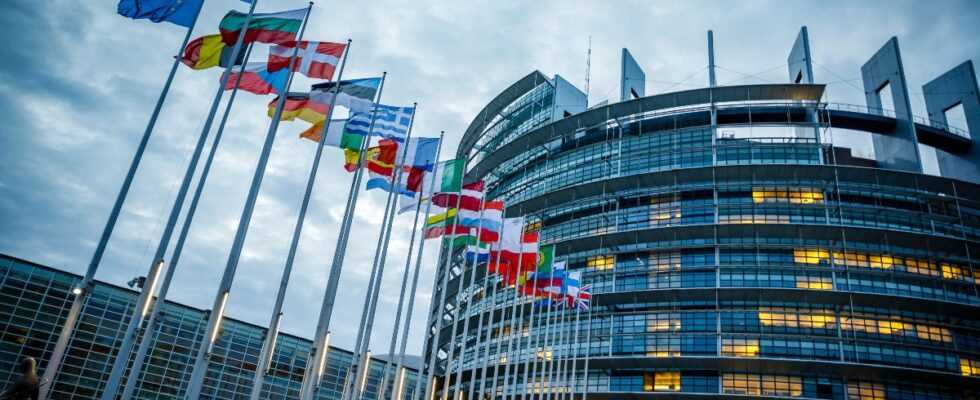The European Parliament adopted, on Thursday 20 January, its version of the draft legislation on digital services. Called the Digital Services Act (DSA), this text aims to better regulate the operation of the platforms of technological giants.
It is a first major step that was taken in Strasbourg to impose stricter regulation of the digital giants, Gafa in the lead. Indeed, the European Parliament adopted its version of the draft legislation on digital services on Thursday, January 20. Called the Digital Services Act (DSA), this text aims to better regulate the operation of the platforms of technological giants. Two months ago, the institution had already passed the Digital Markets Act (DMA), a text supposed to put an end to the unfair practices of technological giants
On January 20, MEPs therefore succeeded in agreeing on an amended version of the Digital Services Act, a long-awaited new regulation to counter the power of groups such as Google and Facebook, whose cross-border influence has become a major source of concerns: 530 MEPs voted in favor of the text and 78 against; 80 parliamentarians decided to abstain. From now on, negotiations will begin with the Member States in order to arrive at a final version of the text, which will again be submitted to the vote of MEPs.
With this legislation, “we are going to create an innovative system, with a simple principle: everything that is prohibited offline is prohibited online”, said Thierry Breton, European Commissioner for the Internal Market. “We are regaining control over the Internet giants”, welcomed the rapporteur for the text, MEP Christel Schaldemose (group of the Progressive Alliance of Socialists and Democrats), during the debate on this text on Wednesday. It ensures that this new regulatory framework will make it possible to “waging a fundamental fight against the Wild West that the digital world has become”.
Dusting off obsolete texts
Presented for the first time in December 2020, the Digital Services Act must update legislation that dates back to the early 2000s, when social networks and smartphones did not yet exist. Since then, the Gafa have taken on a colossal scale, to the point of being today the most powerful companies in the world.
So Apple, which launched the iPhone and created an increasingly criticized closed ecosystem with the App Store, became the first company to hit $3 trillion in market capitalization, when Facebook unwittingly played a role. key in Brexit, the election of Donald Trump, or the attack on the Capitol in the United States. For their part, Amazon is now the world leader in online commerce and the cloud, and Google has developed an exceptional monopoly with its search engine.
A fine of up to 6% of annual turnover
In this context, the Digital Services Act should help to better regulate these giants by imposing control obligations on them, in particular to compel them to remove illegal content (misinformation, incitement to hatred and violence, pornographic content, etc.) and to further monitor the goods sold on their platforms (counterfeits, dangerous products, etc.). The text also aims to fight against the abusive exploitation of personal data and to impose more transparency around the algorithms used by these sites, while the whistleblower Frances Haugen, at the origin of the Facebook Files, revealed that the Facebook’s technical teams were completely overwhelmed with how their own algorithms worked. In a way, the American giant has created a monster that it no longer understands and no longer controls.
With the Digital Services Act, the European Parliament hopes to ring the end of recess to restore order on Facebook and other platforms accused of highlighting extreme content, and thus deepening the polarization of society. To encourage them to comply with the provisions made under this new legislation, it is expected that these giants will be fined up to 6% of their annual turnover. Facebook could thus be condemned to pay 5.2 billion dollars on the basis of its turnover of 86 billion achieved in 2020.
